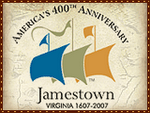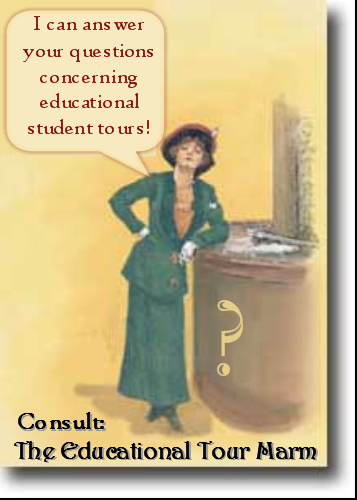Broadway Shows: Teaching Moments


One can't plan a tour of New York City without including a Broadway show!
Most groups opt for the musicals rather than the plays, which is a shame in many ways, as there have recently been some stunning productions of 'straight' plays, both comedies and dramas. In fact, I'm not sure that many people realize that the musical is just one part of Broadway. But for the purposes of this post, I shall concentrate on the big, brassy, Broadway musical. (For a wonderful site exploring the history of musical theatre, try John Kenrick's Musicals101.com.)
The first Broadway musical I saw was the original production of My Fair Lady when I was six years old! No, Rex Harrison and a very young Julie Andrews had since left, but the costumes, scenery, choreography etc. were still the same. I was 'hooked'! My mother and I used to see a show every two months. I remember the original productions of Camelot, Sound of Music, West Side Story, Oliver, Annie, and 42nd Street as well as star-studded revivals of the late '50's through the '80's.
Many of the musicals in those days were far less complicated productions as Andrew Lloyd Webber and a mature Sondheim had not emerged with what can only be termed as almost opera. And the simple song and tapdance numbers became Las Vegas spectacles.
For three years I apprenticed in theatre administration on and off Broadway with the Phoenix Theatre when actors such as Meryl Streep, John Lithgow, and Barry Bostwick were starting out with our company. Ah! The good old days!
Nowadays, the obvious musical choices have been Lion King, Beauty and the Beast (closing soon to make way for The Little Mermaid), Tarzan, The Color Purple, Wicked, Hairspray, Legally Blonde, Rent, and Phantom of the Opera . Only the first three are 'G' rated. Just because there's music involved, doesn't make it appropriate i.e. Avenue Q, Chicago, and Chorus Line.
Les Miserables, one of my favorites, has recently returned. Despite containing a scene in a brothel, Les Miz has extremely spiritual messages of transgression, charity, sacrifice, death, grace, and resurrection. This would certainly be my choice over the evil, embittered, stalker, kidnapper, murderer, and would-be seducer that is known as the Phantom of the Opera. Why people find him romantic is perverse to me. Most students, who remain awake, don't question the true message because they are so mesmerized by the production values and music.
Recently, I was taken to task by some students for not choosing The Color Purple (with Fantasia). I asked them if they had read the book or seen the movie? None of them had. I informed them that there was content related to incest and prostitution amongst other issues. I'm not sure that many parents would find that appropriate for their seventh or eighth graders. We simply have to play it safe. I told them that I expected it to tour their area and invited them to have their parents take them, if their parents found it acceptable.
Interestingly enough, Mary Poppins for many of my groups, was a hard sell. The same groups that requested Beauty and the Beast, shied away from Mary Poppins; I wondered why this was. Some teachers told me that they were concerned about seeing a new production because it was an unknown entity to the kids and not 'cool'. I personally feel that it is better to see a' first run' show and cast, than one that is on its fourth cast or has already toured. The musical Hairspray is now a movie. Besides, what can be more exciting than to say that one has been the first to have seen something?
I had heard wonderful reviews from friends who had seen Mary Poppins in London, so I was reasonably certain that it would be better than the disastrous Chitty-Chitty Bang-Bang from two years ago. It was unfortunate that Mary Poppins won only one Tony Award for scenery and the musical Awakenings (unsuitable for most school groups because of the explicit nature of the book and material) swept the awards. Mary Poppins is nevertheless a feast for the eyes and the musical numbers are fantastic!
Mary Poppins, the theatre musical, has some elements of the Disney movie, but they have added a great deal from the original books by P.L. Travers.
The second act is riveting.
This show continually affects my students on several levels, and during intermission, there is generally much discussion and many questions concerning the family dynamics, business ethics, the life of servants, class system, differences from the movie, and the production itself. This show certainly touches the students on many levels and deep feelings are explored
During the most recent performance of Mary Poppins I attended, my group was intrigued by a musical number which was almost a horror story; the toys in the nursery came to life to taunt the Banks children. About a dozen students ended up talking amongst themselves about how children take out their frustrations on their toys. One student added that she used to tell all her secrets to one particular doll and she would never have treated that doll badly. There were similar revelations and exchanges of ideas.
The teacher, overhearing the discussion, was upset and requested that they not delve too much into the plot and just accept the show as pure entertainment. Well, she really missed the boat here, and a good opportunity for a teaching moment.
But theatre has never been just pure entertainment. The ancient Greeks used theatre to educate. On Broadway, musical theatre has always been known for its social messages and political agenda from the first performance of, Showboat, on to Wicked and Hairspray. One can find all sorts of messages in the so-called, family-friendly musicals of Rodgers and Hammerstein. I really can't think of a show currently playing that doesn't affect us in some way or another on the social level. (Hmmm, Spamalot?)
One of my favorite shows for teaching moments is Annie. Not only does it have snappy tunes, toe-tapping dance numbers, and tugs at the heartstrings, but it is a good starting point for a discussion of the Great Depression and the rise of President Franklin Roosevelt. Annie is a metaphor for the state of this nation during the 1930's.
Additionally, as I have stated before, one of the residual benefits of No Child Left Behind, has been the development of curriculum and standards-based materials by museums, tour sites, and theatre.
Mary Poppins is no exception. The Disney organization, as well as other producers of shows, have developed study packets for groups for pre and post classroom study. Some shows send 'trunks' of materials to the classroom as well as the option of having someone visit the class to introduce the show. Then there is Camp Broadway. All one has to do is ask.
I can always tell the groups that have been prepared, they're the ones not restless in their seats nor talking throughout the show. (Believe it or not, I have actually seen students sitting in the theatre listening to IPODS and MP3's during a show!)
The ephemeral nature of theatre and the experience of a live show stays with us and affects us for our entire lifetime. The concept that the performance one is attending is unique, is not lost on the theatregoer. I have attended the same show many times, only to find that the performances vary in one way or another. (During a recent performance of Legally Blonde, the character of Elle literally lost her blonde wig before the Bend and Snap musical number! Though hysterical to see hair fly across the stage and how they dealt with it, I doubt there will be a repeat of that in future performances! I was glad to have been there for that!) The memories of individual performances by Richard Burton, Sir Alec Guinness, Katherine Hepburn, Ingrid Bergman and Ethel Merman, will forever stay with me; in actuality, they were but brief moments in time.
While arguably a revue is meant to be pure entertainment, the Broadway show is not and it should be explored and discussed. It is the way young people learn to thoroughly appreciate theatre.
Never underestimate your students, they are far sharper and perceptive than you can imagine!
The Greeks knew what they were doing.
***********************************************
The next time you plan on taking your students to a theatre performance, inquire of the theatre if they have any educational packets for your groups. Chances are that they will have something as most shows in the past six years have developed materials and lesson plans. Many theatre companies have education departments; talk to them. There might also be resources online that one can download.
You might also ask about specific adult content, themes, and age appropriateness when booking. Most sales people connected with student tour operators don't know about the individual shows, so it is best to go right to the source. Don't book a show because of pressure from your students or the popularity of the show, one must face parents, administration, and school boards! What is acceptable for some of my public schools, may not be for my private, and parochial. ( Incidentally, my personal opinion is quite different from my professional opinion!)
I haven't yet seen Curtains (next on my list) and I can't wait to see if Young Frankenstein will be suitable for school groups.
This Broadway Baby makes it her business to see all the shows and give an honest assessment to my groups. It's a hard job, but somebody's got to do it!
******************************************
Interested in Mary Poppins?
Disney Group Sales Email - inquire about educational materials
Group Sales Telephone: 800-439-9000 or 212-703-1040
Newsweek Review of Mary Poppins
New York Times Review
About Camp Broadway
Panasonic has teamed with Camp Broadway to create distance learning materials
Disney Cyber Lesson Plans
Broadway Cares/Equity Fights AIDS, can give your students a Q&A session with cast members immediately after the show (in the same theatre) for a small fee which goes to the charity.















No comments:
Post a Comment